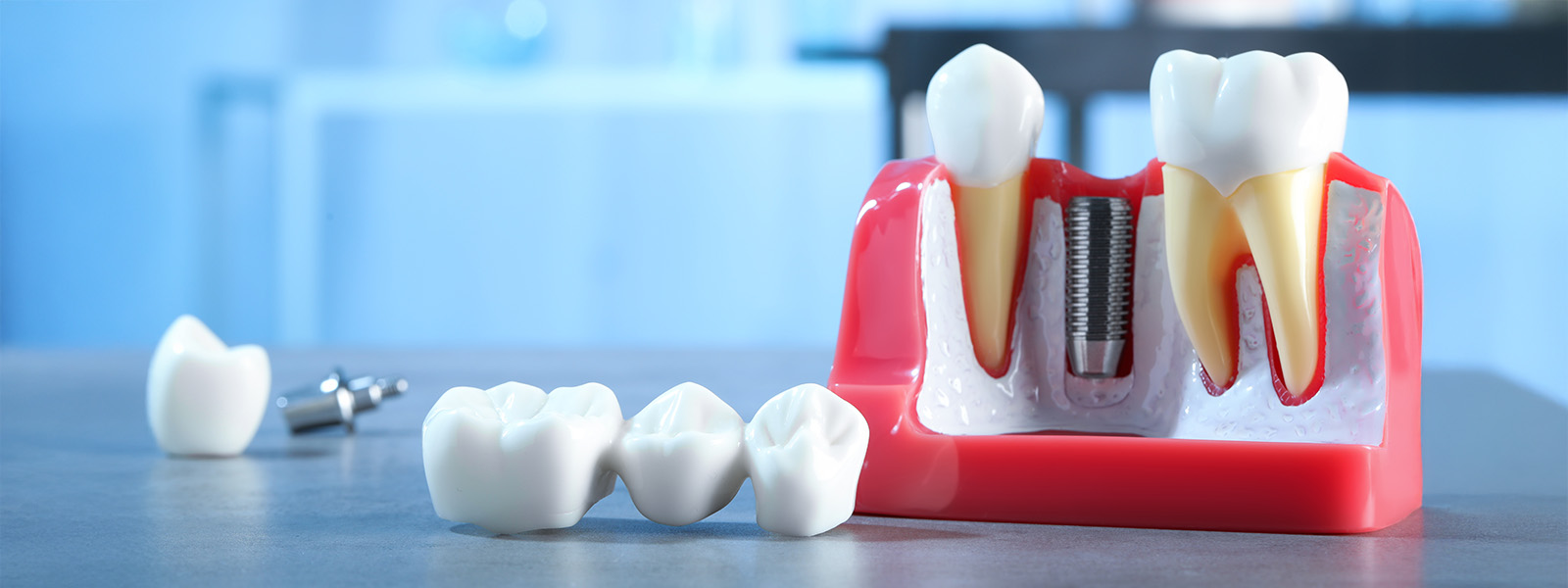The good news is that dentistry continues to evolve more and more, and in that eagerness to advance technology and methods, new and better solutions are developed for the most dissimilar problems, including the loss of a tooth. Some of these options, such as dentures or overdentures, work very well in very specific cases or as temporary alternatives. But if we talk about real and lasting replacements, the comparison always comes down to the two protagonists: traditional bridges and dental implants.
In the case of the former, it is important to add that, for years, they have been the most common way to replace a permanent tooth that must be extracted or that falls out as a consequence of some condition or accident. It is, therefore, a treatment that allows the damage to be resolved quickly and efficiently, without the cost being too high.
On the other hand, implants came to change the rules of the game. We are talking here about a procedure that, instead of depending on neighboring teeth, is placed directly into the bone, protecting the patient from other problems such as occlusion or the loss of maxillary structure. They also function as an artificial root on which a crown that perfectly mimics the natural tooth is placed.
But let’s go step by step. We are going to explain to you in detail what you can expect if you decide to get dental bridges. The idea is quite simple: the empty space is filled with an artificial piece (which dentists call a pontic) that is secured with crowns placed on the adjacent teeth.
To achieve proper fixation, these structures are shaped as part of a process that removes the natural enamel and exposes the tooth to risks of sensitivity, cavities, or fractures in the future. This is what specialists mean when they talk about the “biological cost”: you are sacrificing two teeth to be able to replace only one.
Another disadvantage has to do with durability. Over time, the bridge supports tend to weaken, and the gums may first become irritated and then suffer from recessions that affect aesthetics and function. On the other hand, oral hygiene is complicated with this treatment, since cleaning under the pontic requires special care, and if it is not done correctly, it increases the risk of gingival inflammation and infections.
If the adjacent teeth were previously damaged and needed crowns anyway, this wear may be a good option. Likewise, this procedure is recommended when the patient cannot have implants for health reasons such as uncontrolled diabetes, severe bone problems, or the use of certain medications.
Implants are permanent replacements that are surgically inserted into the jaw to serve as a stable base for an artificial tooth. They are also a long-term, durable solution because they replace the missing piece from the root, preventing the resorption of the bone structures of the mouth.
The big difference is that the implant does not need support from other teeth, so your natural teeth remain healthy and intact, without unnecessary wear or shaping. They thus become the most conservative and, at the same time, the most durable option.
One of the questions we most often receive from patients who visit our clinic in Miami has to do with the cost of treatments. And this uncertainty is logical because the financial investment plays a fundamental role in any decision of this kind. This is the ideal time to consider the price of the treatment, the long-term value, and the impact on your oral health.
At first, dental bridges seem more accessible. We are dealing with a quick procedure that does not require surgery and allows results to be obtained in a few days. The exact price depends on several elements, such as the type of material, the clinic where you undergo the treatment, and the quality or prestige of the specialists.
According to the Healthline website, a low-end dental bridge costs around 500 dollars per tooth, while the most expensive ones can cost up to 1,200. This does not include the price of the crown that attaches the tooth to the adjacent teeth: approximately between 500 and 2,500 USD additional per tooth.
At Aria Smile Design, we always have very competitive prices and special offers almost all year round. Visit our social media and website to stay informed about these opportunities and about the financing options we have available. Our goal is to help you achieve the healthy and beautiful smile you deserve.
One of the most significant contrasts we can establish here is the time each treatment takes. While bridges stand out for offering quick results in just a week or two, implants require a little more patience, since it is a surgical process that takes place over a period of five to nine months, depending on the characteristics of the patient and how they respond to healing and to the process of integration of the screw into the bone, known as osseointegration.
In durability, we also find another point of contact. According to the most recent data, implants have a success rate close to 95% in well-selected patients, as long as they are performed with the proper technique and in the hands of talented professionals, such as those who are part of the Aria Smile Design team, where we also have facilities of the highest standard and comfort. Bridges, on the other hand, hover around 70% long-term success, and their performance depends greatly on the condition of the abutment teeth and the patient’s oral hygiene.
Although both implants and bridges are very common, not everyone is an ideal candidate for them. In the case of the former, some of the contraindications are:
With dental bridges, the limitation is different. In principle, almost anyone can get one, since they do not involve surgery. But the real question is whether it is advisable to do so, especially if you take into account that in order to place them, it is necessary to wear down the natural enamel of the adjacent teeth, which is especially harmful if these remain healthy. This procedure is also not recommended if the patient does not have enough bone to support the extra weight.
What is the first thing that comes to your mind when, for one reason or another, you lose a tooth? What do you think about this gap in your teeth being too noticeable when you talk or smile? Well, you will probably start to analyze, initially, the repercussions on your physical appearance. And yes, recovering aesthetics is vital, but even more important is achieving this goal without damaging the health of your mouth.



